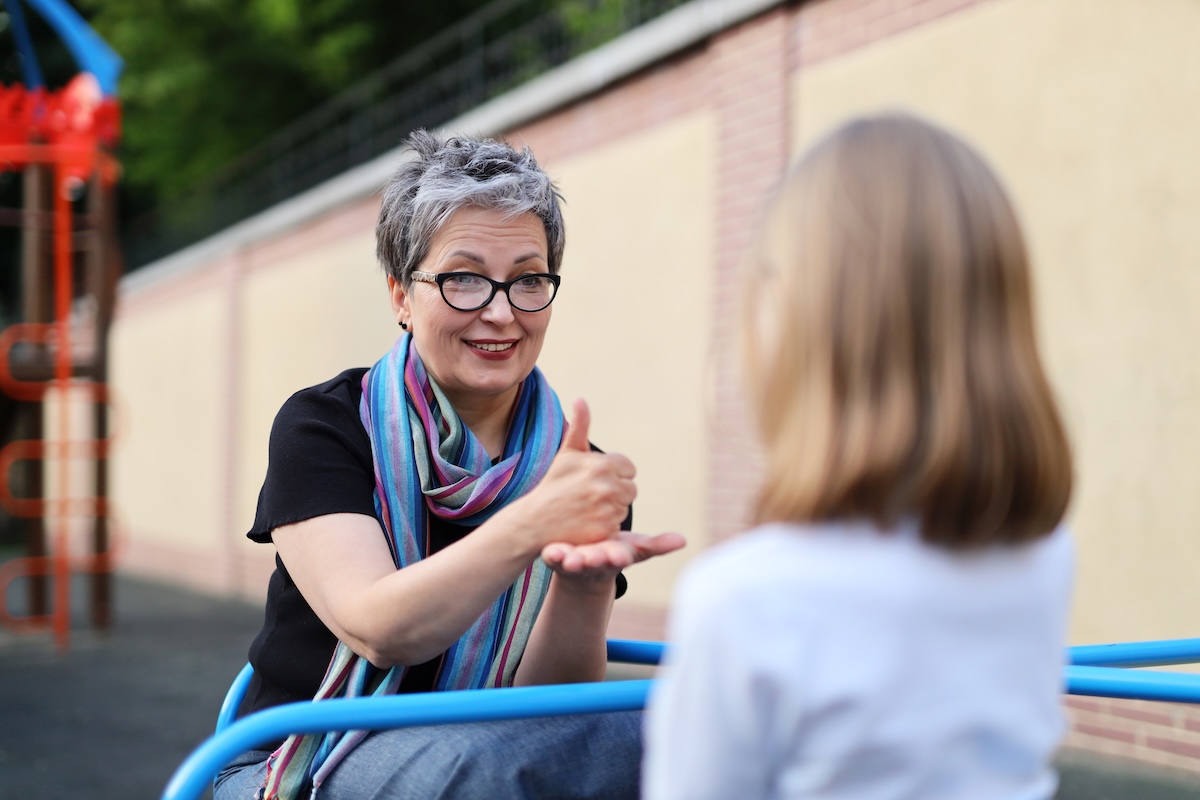Federal agencies cancelled more than $17.5 million in funding across TC’s education, health and psychology projects, including grant termination letters by the U.S. Department of Education on March 7. Additional cancellation notices for an NIH grant, two F31 student fellowships, and two Fulbright-Hays awards were issued later in March. Since then, College leadership and faculty have investigated the full scope and impact of the federal grant cuts as outlined below.
Some of the most vulnerable communities, locally and nationally, have been impacted by the termination of these grants. From community college students in Virginia to deaf children in rural areas, learn more about the critical research affected by the grant cuts below.
ExCell in Science supports early science education among underserved preschoolers by creating science lessons, teacher training and assessment tools — and working with educators to ensure long-term success. While science education in pre-school provides a critical foundation for future learning and advancement, the ExCell in Science program — led by Carol Hammer, Professor of Communication Sciences and Disorders — aims to address two key barriers. First, there are very few high-quality and evidence-based science programs designed for preschoolers. Second, preschool teachers typically have not received preparation on how to teach science to young children.
Impacted Community: 1700 preschoolers and 96 teachers in the City of Philadelphia, which has the highest poverty rate of the most populated cities in the United States. Long-term, the study has the potential to inform the education of millions of young learners across the U.S.

(Photo: iStock)
The CITY Program trains school mental health providers to offer critical support for students in high-need schools. Led by Prerna Arora and Mel Collier-Meek — Associate Professors of Psychology and Education — as well as lecturer Kait Gould, this program addresses workforce shortages, strengthens district capacity and improves student mental health services.
Impacted Community: 16 future school psychologists, as well as numerous students and families from underserved backgrounds, including immigrant-origin and newcomer youth.
Raising Educational Achievement Coalition of Harlem (REACH) supports two local community schools by working closely with principals, teachers and families to improve academic performance, attendance and graduation rates in service of long-term student success. REACH — led by program director Jamila Gerald — offers a wide-array of resources critical to student outcomes, including mental health and family support.
Impacted Community: More than 600 students and families in Harlem, many of whom are from low-income backgrounds and face systemic barriers to educational success, as well as school teachers, staff and neighbors.

(Photo: iStock)
The LAUNCHPAD program trains speech-language pathology candidates to provide effective support for students with high-intensity needs. Through scholarships, mentoring and professional development, the program — led by Michelle Troche, Professor of Speech and Language Pathology, and lecturer Panagiota Tampakis — prepares underrepresented scholars for leadership while improving outcomes for multilingual and disabled children.
Impacted Community: 16 speech-language pathologists in training, as well as numerous children and families in New York City.
The COACH (Collaborating to Optimize Achievement for Children with Hearing Loss) Project trains 30 teachers of the deaf and speech-language pathologists to provide family-centered early intervention for diverse children with hearing loss. The program scales the development of skilled professionals who can provide high-quality support to children who are deaf or hard-of-hearing across the U.S., and is led by Senior Lecturer Maria Hartman, Visiting Assistant Professor Elaine Smolen, and Lecturer Panagiota Tampakis.
Impacted Communities: Students who are deaf in rural communities. Teacher shortages for deaf students are most prevalent in rural areas, making recruiting and preparing educators from rural communities a central focus of COACH, which has successfully prepared numerous teachers from communities in Iowa, Montana, Vermont, and the North Country in upstate New York.

(Photo: iStock)
The COCO Project (COlumbia COllaborate: Cross-disciplinary Opportunities to improve Communication Outcomes) trained 40 scholars to support deaf and hard-of-hearing children with high-intensity needs while maintaining high expectations for their success. Through collaboration, future teachers and speech-language pathologists develop skills in assessment, language and literacy instruction, individualized intervention and teamwork. Both COCO and COACH projects have trained new teachers from across the metropolitan area, from Staten Island to Upper Manhattan, Rockland County to Long Island. The COCO Project is led by Erika Levy, Professor of Communication Sciences and Disorders; Senior Lecturer Maria Hartman; and Visiting Assistant Professor Elaine Smolen.
Impacted Communities: TC grads work across the United States in every setting in which deaf and hard-of-hearing children and their families are found. They lead classrooms in state schools for the deaf, coach parents in family-centered early intervention and travel from school to school providing itinerant deaf education services. Many graduates collaborate with administrators and educators at religious, charter and private schools to provide specialized support that allows deaf children to attend the program of their families’ choice.
“Does Federal Work Study Work for Students?” is the first evaluation of the impact of receiving a federal work-study offer on academic and employment outcomes for low-income students. The Work-Study program — which subsidizes part-time jobs for college students, mostly on-campus — is one of the oldest federal policy tools intended to promote college access and persistence for low-income students. The program serves approximately 1 in 10 college students at a cost of a little over $1 billion annually, yet this project — led by Judith Scott Clayton, Professor of Economics and Education — is the first to rigorously evaluate it.
Impacted Community: Approximately 400,000 students hold a Federal Work-Study job nationwide each year, with 1 in 10 college students participating at some point in their college career. However, Scott-Clayton estimates that many more students receive a Work-Study offer in their financial aid package each year and need information on the benefits of the program.
When aid programs don’t work well, students suffer the consequences and may even end up dropping out or never enrolling at all. The opportunity to critically assess the cost effectiveness of a significant federal financial aid program, to ensure that every dollar invested is having the maximum positive impact on students, will be lost.
Accelerating Recovery in Community Colleges (ARCC) Network examines how community colleges are recovering from the impacts of Covid-19. Key areas of focus for the research partnership led by TC’s Community College Research Center (CCRC) include online education, workforce training, financial aid in high-demand workforce fields, and other critical areas. The lead team is also conducting national research on enrollment and transfer trends and the effectiveness of pandemic recovery funding. CCRC’s work was national in scope. The six research teams in the network conducted focused studies in California (statewide and in Los Angeles), Florida, Tennessee and Virginia.
Impacted Community: Community colleges across the country, close to 1,000 in total, are focused on pandemic recovery. The ARCC Network supports them in implementing strategies to rebuild enrollments and address learning needs of more than 8 million students.

(Photo: iStock)
Virginia Workforce Recovery is a collaborative research project that aims to improve the Virginia Community College System’s pandemic workforce recovery initiative, titled “Get A Skill, Get A Job, Get Ahead (G3).” G3’s last-dollar scholarships support students in high-demand occupational programs across healthcare, IT and computer science, manufacturing, early childhood education and public safety. The project is a partnership between CCRC, VCCS, and researchers at the University of Pennsylvania.
Impacted Communities: Students in the Virginia Community College System will be unable to benefit from findings about the efficacy of the state’s pandemic workforce recovery program. And students in other states and systems will also lose out on potential improvements to workforce scholarship programs.
The Postsecondary Education Applied Research (PEAR) Fellowship funds 15 doctoral students at Teachers College, and trains them to become applied higher education researchers with skills in quantitative analysis and practical project management. The students participate in apprenticeships at TC, the Community College Research Center, and elsewhere and develop the expertise to evaluate the effectiveness and cost effectiveness of educational programs and interventions that help students succeed in college and the workforce. PEAR fellows have conducted research to improve higher education policies and programs in California, Massachusetts, Minnesota, Ohio, Texas, Virginia and Washington State.
Impacted Communities: Fifteen doctoral students preparing for leadership roles in higher education research and policymaking will lose funding and training opportunities with state and local higher education agencies.
The Regional Education Laboratory (REL) Northwest, led by WestEd, developed a toolkit for postsecondary instructors and instructional designers to effectively use technology to support learning by college students. CCRC is evaluating a professional learning component of the toolkit at community colleges in Oregon through a contract with REL Northwest.
Impacted Communities: Oregon community college students will lose the benefit of findings on using technology to improve classroom teaching and student learning. The findings would have relevance to teaching and learning at colleges across the country.
